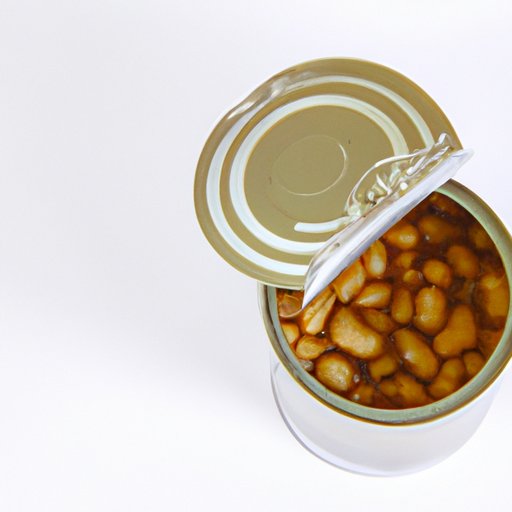Introduction
Beans are a staple food in many cultures around the world. They’re a great source of plant-based protein, fiber, vitamins, and minerals. Canned beans are a convenient way to enjoy the health benefits of beans without spending hours cooking them. But are canned beans really as healthy as fresh or dried beans? This article will explore the nutritional content of canned beans, the potential health benefits and risks, and tips for selecting the healthiest canned beans.
Nutritional Analysis of Canned Beans
Canned beans are a good source of macronutrients, vitamins, and minerals. Depending on the type of bean, one cup (172 grams) of canned beans contains about:
- Calories: 200–240
- Protein: 12–15 grams
- Fiber: 10–13 grams
- Vitamins: B1, B3, B6, and folate
- Minerals: Iron, magnesium, phosphorus, potassium, and zinc
Canned beans also contain small amounts of calcium, vitamin E, and some B vitamins.
Benefits and Risks of Eating Canned Beans
Health Benefits
Eating beans can provide a variety of health benefits. For instance, a study published in the British Journal of Nutrition found that consuming beans regularly was associated with lower body weight, a smaller waist circumference, and a lower risk of obesity. Beans are also high in fiber, which helps keep you feeling full and can aid in weight loss.
In addition, beans are a great source of plant-based protein and can help reduce your risk of chronic diseases like heart disease and diabetes. According to a review published in the journal Nutrients, beans are also linked to improved gut health and may even help protect against certain types of cancer.
Potential Risks
While beans are generally considered to be healthy, there are some potential risks to consider. For example, beans are rich in lectins, which are proteins that can cause digestive issues in some people. Additionally, beans contain phytic acid, which can interfere with the absorption of some minerals. If you’re sensitive to these compounds, it’s best to limit your intake of beans.
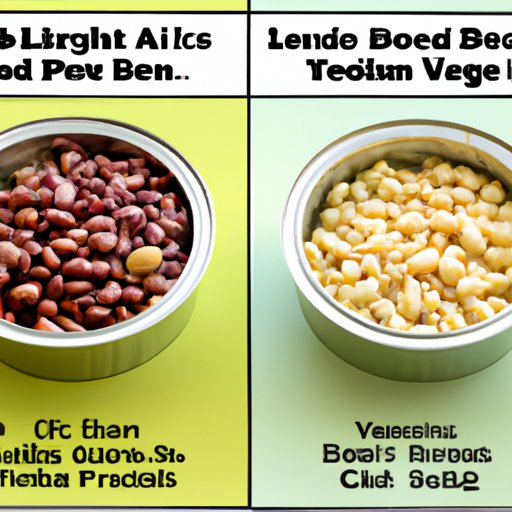
Comparison of Canned vs. Fresh or Dried Beans
Nutrient Content
Canned beans are a great source of nutrients, but they may not be as nutritionally dense as fresh or dried beans. According to a study published in the International Journal of Food Sciences and Nutrition, canned beans have lower levels of certain vitamins and minerals compared to fresh or dried beans.
Taste and Texture
The taste and texture of canned beans can vary depending on the brand and type of bean. Generally speaking, canned beans tend to be softer and less flavorful than fresh or dried beans. However, some brands offer varieties that are closer to the texture and flavor of freshly cooked beans.
Convenience
Canned beans are definitely the most convenient option when it comes to preparing beans. All you have to do is open the can, drain and rinse the beans, and they’re ready to use in your favorite recipes. On the other hand, fresh and dried beans require soaking, boiling, and other preparation steps, which can take up to several hours.
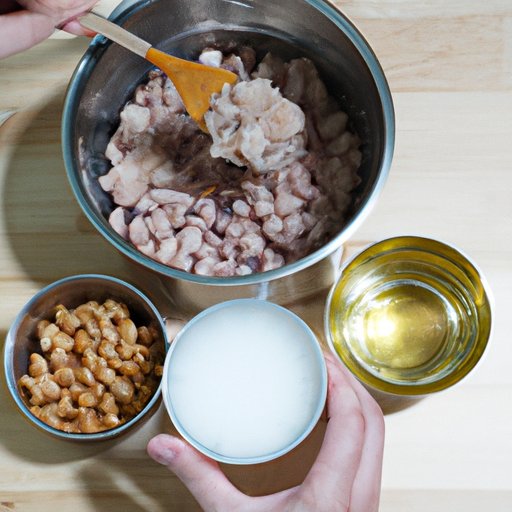
How to Make Healthy Meals Using Canned Beans
Canned beans are incredibly versatile and can be used in a variety of delicious and nutritious meals. Here are just a few ideas:
Salads
Beans are a great way to add protein and fiber to salads. Try adding black beans, chickpeas, or kidney beans to your favorite greens, vegetables, and dressings.
Soups
Canned beans are a great way to add protein and flavor to soups. Try adding lentils, black beans, or white beans to your favorite vegetable or broth-based soups.
Stews
Beans can add substance and flavor to stews. Try adding navy beans, black-eyed peas, or pinto beans to your favorite meat or vegetable stew.
Burgers
Beans can be used to make delicious veggie burgers. Try blending together cooked lentils, black beans, or chickpeas with seasonings, herbs, and spices and forming into patties.
Pros and Cons of Eating Canned Beans
Pros
- Convenient
- Affordable
- High in protein and fiber
- Rich in vitamins and minerals
- Versatile
Cons
- May contain additives and preservatives
- May contain BPA and plasticizers
- Not as nutritionally dense as fresh or dried beans
- May contain heavy metals
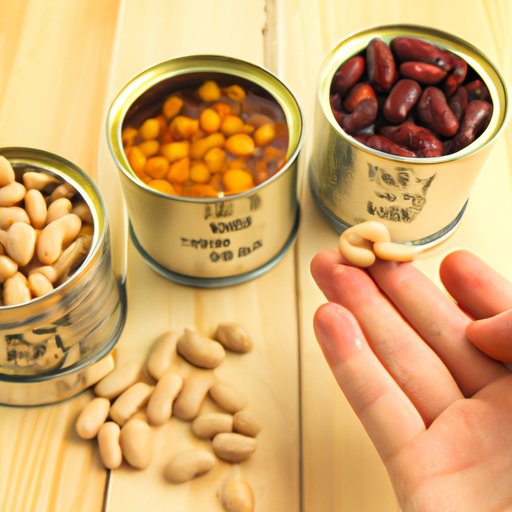
How to Choose the Healthiest Canned Beans
Ingredients
When choosing canned beans, look for varieties that contain only beans and water or a low-sodium broth. Avoid varieties that contain added sugar, fat, or salt, as well as artificial colors, flavors, and preservatives.
Labels
Check the nutrition label to compare different products and find the healthiest option. Look for varieties that are low in sodium and contain no added sugar or fat.
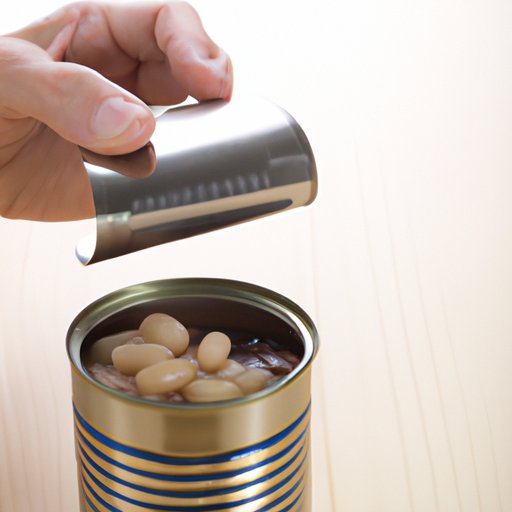
Examining the Safety of Canned Beans
BPA and Plasticizers
Many canned foods, including beans, are packaged in cans lined with bisphenol A (BPA). BPA is an industrial chemical that has been linked to various health problems. Additionally, some cans may contain plasticizers, which are chemicals added to plastics to increase their flexibility and durability. Both BPA and plasticizers can leach into foods, so it’s important to buy BPA-free and plasticizer-free cans whenever possible.
Heavy Metals
Canned beans may also contain trace amounts of heavy metals, such as lead and mercury. While the amounts are generally very low, it’s still important to choose products from reputable brands and avoid those with higher levels of heavy metals.
Microbes
Canned beans may also contain microbes, such as bacteria and fungi. To reduce your risk of foodborne illness, it’s important to buy canned beans from reputable brands and follow proper storage and handling guidelines.
Conclusion
Canned beans can be a convenient and affordable way to enjoy the health benefits of beans. They’re a good source of protein, fiber, vitamins, and minerals and can be used in a variety of delicious and nutritious meals. However, it’s important to choose varieties that are free of additives and preservatives, as well as BPA and plasticizers. It’s also important to check labels for sodium and added sugar or fat. Finally, make sure to buy from reputable brands and follow proper storage and handling guidelines to reduce your risk of foodborne illness.
(Note: Is this article not meeting your expectations? Do you have knowledge or insights to share? Unlock new opportunities and expand your reach by joining our authors team. Click Registration to join us and share your expertise with our readers.)
